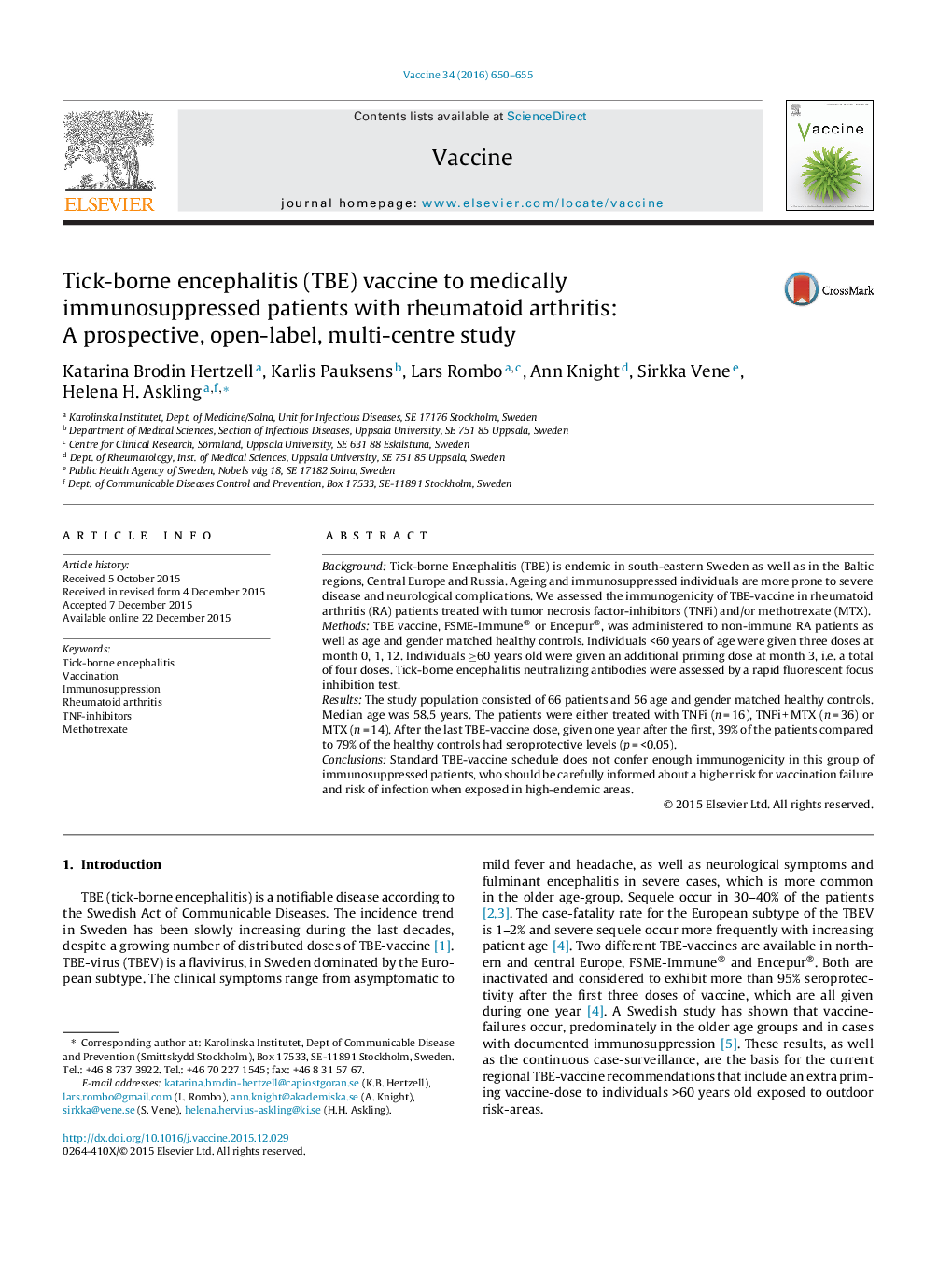| Article ID | Journal | Published Year | Pages | File Type |
|---|---|---|---|---|
| 2402159 | Vaccine | 2016 | 6 Pages |
•39% of the immunosuppressed patients and 79% of the matched controls were protected against TBE•Cell mediated immunity, alternative TBE-vaccine dosing schedules and more adjuvanted vaccines should be further studied.•Immunocompromised patients should be informed about a higher risk for TBE-vaccination failure.
BackgroundTick-borne Encephalitis (TBE) is endemic in south-eastern Sweden as well as in the Baltic regions, Central Europe and Russia. Ageing and immunosuppressed individuals are more prone to severe disease and neurological complications. We assessed the immunogenicity of TBE-vaccine in rheumatoid arthritis (RA) patients treated with tumor necrosis factor-inhibitors (TNFi) and/or methotrexate (MTX).MethodsTBE vaccine, FSME-Immune® or Encepur®, was administered to non-immune RA patients as well as age and gender matched healthy controls. Individuals <60 years of age were given three doses at month 0, 1, 12. Individuals ≥60 years old were given an additional priming dose at month 3, i.e. a total of four doses. Tick-borne encephalitis neutralizing antibodies were assessed by a rapid fluorescent focus inhibition test.ResultsThe study population consisted of 66 patients and 56 age and gender matched healthy controls. Median age was 58.5 years. The patients were either treated with TNFi (n = 16), TNFi + MTX (n = 36) or MTX (n = 14). After the last TBE-vaccine dose, given one year after the first, 39% of the patients compared to 79% of the healthy controls had seroprotective levels (p = <0.05).ConclusionsStandard TBE-vaccine schedule does not confer enough immunogenicity in this group of immunosuppressed patients, who should be carefully informed about a higher risk for vaccination failure and risk of infection when exposed in high-endemic areas.
